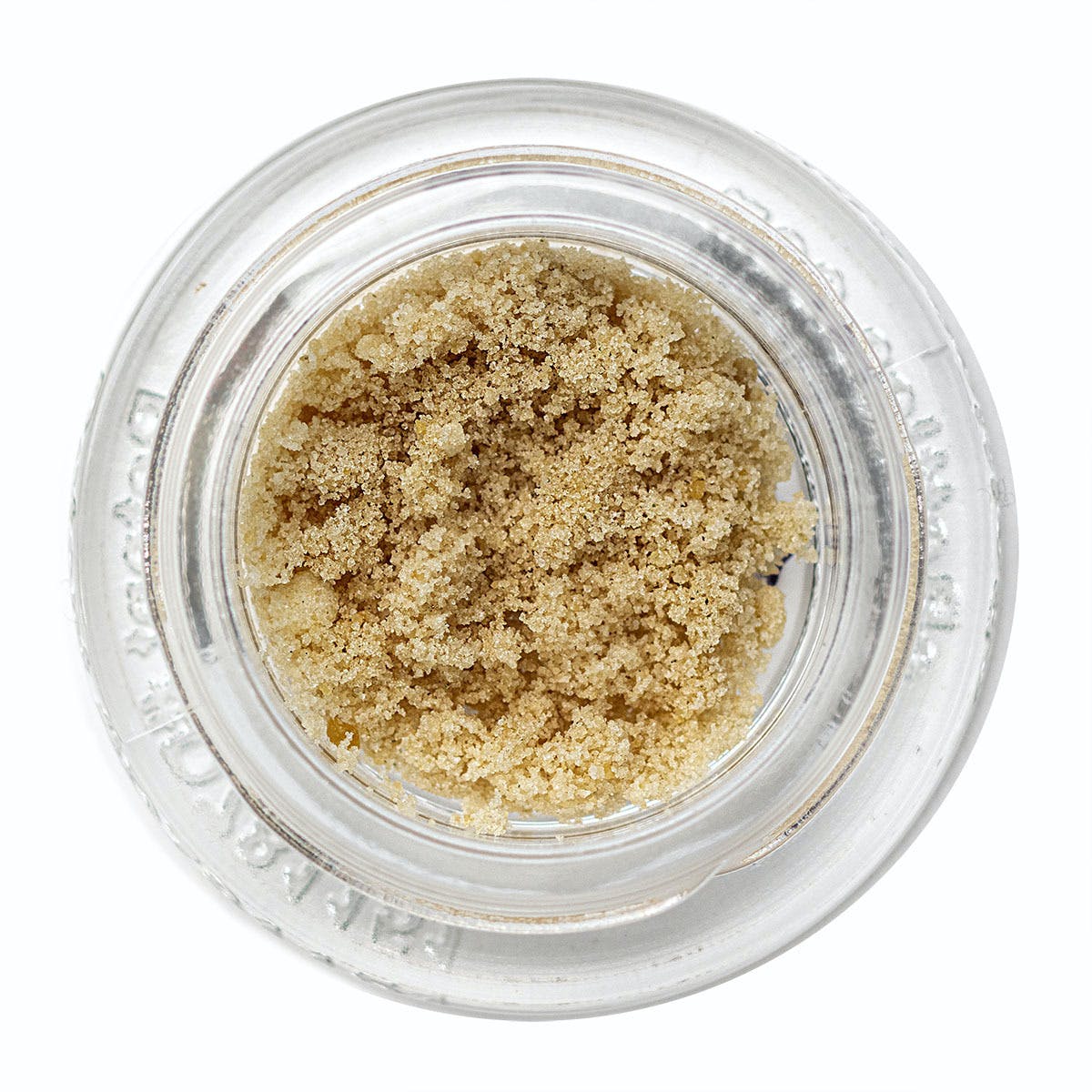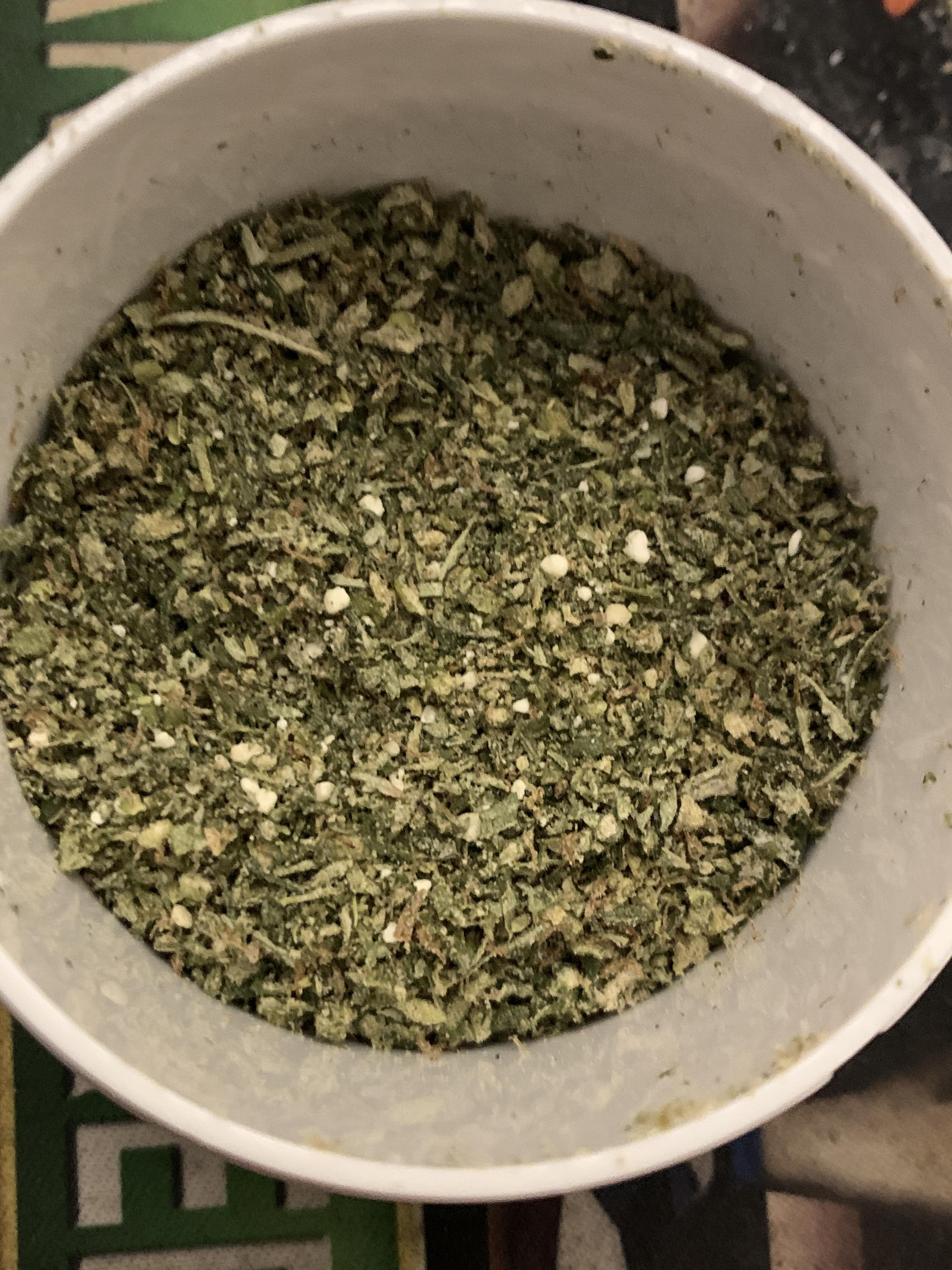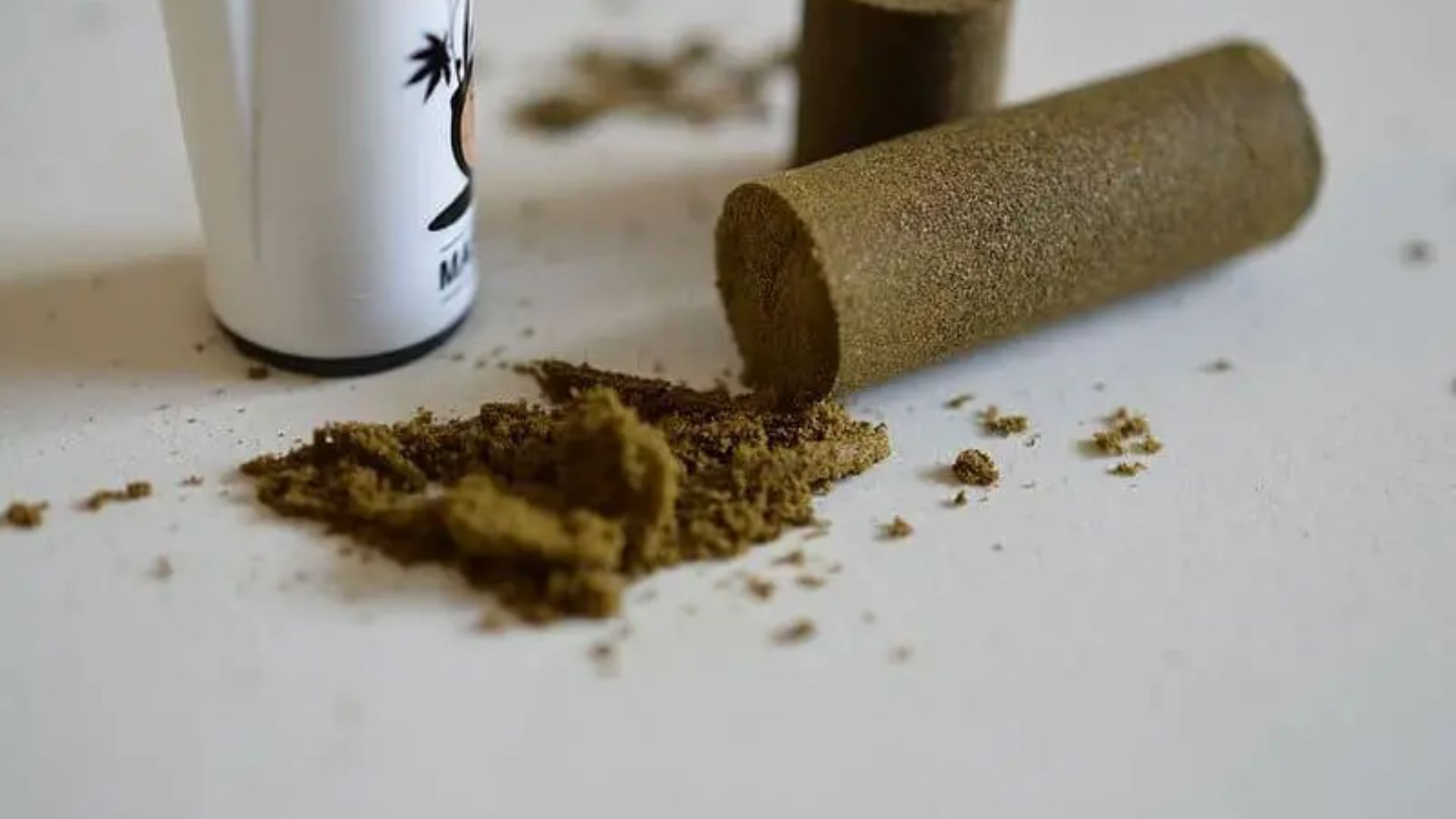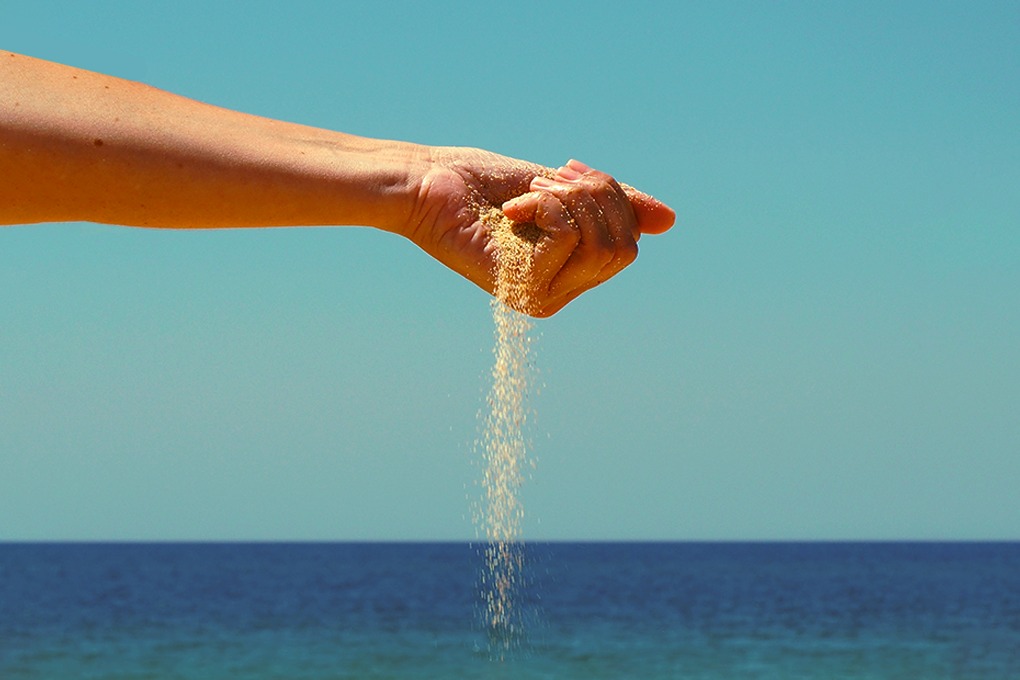What Is THCA Sand?
THCA sand, a captivating and sought-after cannabis concentrate, stands as a pinnacle of potency and purity in the realm of marijuana products. But what is THCA sand, exactly? THCA sand is a concentrated form of cannabis that preserves the raw, acidic form of tetrahydrocannabinolic acid (THCA).
Author:Suleman ShahReviewer:Han JuMar 01, 202427.1K Shares849.3K Views
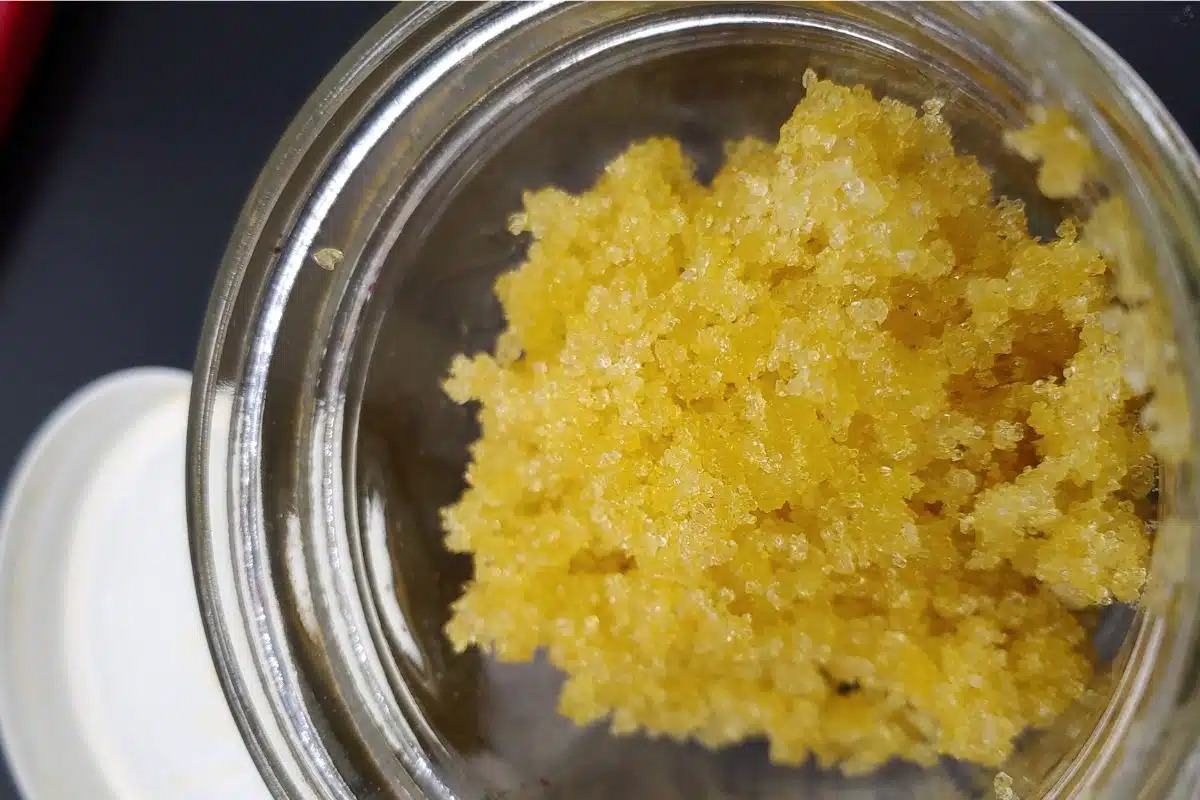
In the realm of cannabis concentrates, THCA sand has emerged as a fascinating and potent player. What is THCA sand, and why is it gaining attention in the cannabis community? To unravel the complexities of this unique cannabis extract, we delve into its origins, extraction processes, chemical composition, potential benefits, and the overall impact it has on the world of cannabis enthusiasts.
THCa Sand
THCA is live resin beach sand. Highly concentrated live resin beach sand is made from newly frozen (or flash-frozen) organic plant material.
Many plants release resin, a thick, sticky, intractable material. Cannabis resin glues trichomes, cannabinoids, and terpenes together. Gathering resin is like gathering cannabis extracts and concentrates. Live resin derives from fresh cannabis that has been flash-frozen before drying and curing. Terpenes and cannabinoids may deteriorate during cultivation; this is done to maintain them.
Raw cannabis flower creates kief. Sifting trichomes over excellent mesh screens yields kief (dry sift). (Yes, like your grinder's!) The finest screen removes as much coarse debris from the resin as possible, making the kief very fine. The sift is called sand because of its thin crystalline structure. THCA live resin beach sand is ultrapure. THCA sand is highly concentrated at 95% purity.
Texture And Appearance
THC and has a granular, sand-like crystalline texture. It is common in beach sands and has particular characteristics. THC sand is coarse due to its particle sizes.
Rubbing THC sand between fingertips reveals its rough surface due to its granular nature. Because sand contains minerals and rock bits, it has this texture. The coarseness or smoothness of the texture depends on the particle size.
In addition to texture, THC sand may vary in appearance. Due to sunlight, wind, and water, beach sand is lighter. Due to wave friction, beach sand particles are rounder and polisher.
Other kinds of THC sand may be more angular and darker, depending on geology and mineral content. Sand may also have a particular hue or pattern due to impurities and other mineral particles.
THC sand's texture and appearance depend on its granular structure, particle sizes, and mineral makeup. The surroundings and external influences like sunshine and water may affect the color and texture of sand.
The Science Behind THCA Sand
In the ever-evolving landscape of cannabis concentrates, THCA sand stands out as a crystalline marvel that captivates enthusiasts and researchers alike. To comprehend the intricacies of THCA sand, one must delve into the scientific processes that shape its origins, from the cultivation of cannabis plants to the meticulous extraction and crystallization techniques employed in its creation.
Cultivating The Source
At the heart of THCA sand lies the cannabis plant, the source of a myriad of cannabinoids, including tetrahydrocannabinolic acid (THCA). Unlike its more infamous counterpart, THC, THCA is non-psychoactive in its raw form. Cannabis plants produce THCA as a precursor to THC, and factors such as strain genetics, growing conditions, and cultivation practices influence the levels of THCA present.
Cultivators play a pivotal role in determining the THCA content of cannabis plants. Strains with a propensity for higher THCA production are often selected, and cultivation methods are fine-tuned to optimize the conditions that favor the accumulation of this cannabinoid. The journey of THCA sand begins with the careful cultivation of cannabis plants that hold the potential for elevated THCA concentrations.
Harvesting And Processing
The harvesting and processing of cannabis plants mark the next phase in the journey towards THCA sand. Once cannabis plants reach maturity, they are carefully harvested to preserve the delicate balance of cannabinoids, including THCA. Immediate and precise handling is crucial to prevent the degradation of THCA into THC through a process known as decarboxylation.
Post-harvest, cannabis plants undergo extraction processes to isolate the cannabinoids from the plant material. Solvents like butane or CO2 are commonly employed in these processes, ensuring the efficient separation of THCA from other compounds. The resulting extract sets the stage for the transformation of THCA into its crystalline form.
Crystallization
The art of crystallization is where the magic happens in the creation of THCA sand. Extracts rich in THCA undergo a carefully controlled process of evaporation. This slow evaporation allows THCA molecules to arrange themselves in an ordered, crystalline structure, culminating in the formation of THCA sand.
The temperature, pressure, and environmental conditions during crystallization play a pivotal role in determining the size and quality of the resulting crystals. Meticulous attention to detail is essential, as even minor deviations in these variables can significantly impact the final product. The sciencebehind crystallization transforms the once-liquid extract into the granular, sand-like substance that characterizes THCA sand.
Quality Control
As the THCA sand takes shape, rigorous quality control measures come into play. Producers meticulously test the final product to ensure it meets the desired standards of purity and potency. The absence of other cannabinoids or impurities is crucial in maintaining the unique characteristics of THCA sand.
The scientific precision applied throughout the entire process, from cultivation to crystallization, contributes to the consistency and reliability of THCA sand as a cannabis concentrate. The journey from plant to crystalline structure exemplifies the fusion of nature and scientific expertise in the creation of this specialized extract.
Innovation And Advancements
The science behind THCA sand is not static; it is a dynamic field driven by ongoing research and technological advancements. As the cannabis industry continues to evolve, so too will the methods used to extract and crystallize THCA.
Innovations in cultivation techniques, extraction processes, and crystallization methods are poised to shape the future of THCA sand, offering new possibilities for cannabis enthusiasts and medical users alike.
What Are THCA Sand Edibles?
THCA sand ediblesare foods that have been infused with this unique cannabis concentrate. An innovative method to enjoy this concentrate and its possible advantages is to infuse it with a wide variety of foods.
Furthermore, users may avoid airway irritation, combustion residues, and other hazards connected with smoking by putting THCA sand into consumables, which is an intriguing alternative to typical inhalation techniques.
Best Way To Use Thca Sand
The best way to use THCA sand depends on personal preferences, experience level, and desired effects. THCA, in its raw form, is non-psychoactive, and the methods of consumption focus on preserving its therapeutic potential. Here are some popular ways to use THCA sand.
Vaporization
- Vaporization involves heating THCA sand to a temperature below the point of combustion, allowing the crystals to release vapor without producing smoke.
- Vaporization preserves the terpenes and cannabinoids present in THCA without the harmful byproducts associated with combustion. It offers a smoother and potentially more flavorful experience.
Dabbing
- Dabbing involves placing a small amount of THCA sand on a heated surface, typically a dab rig or vaporizer, and inhaling the resulting vapor.
- Dabbing provides quick and efficient absorption of THCA. It's a preferred method for those seeking immediate effects and potent doses.
Sublingual Consumption
- Placing a small amount of THCA sand under the tongue allows for sublingual absorption.
- Sublingual absorption bypasses the digestive system, offering a faster onset of effects. It can be discreet and convenient.
Incorporation Into Edibles
- THCA sand can be infused into various edible products, such as gummies, chocolates, or tinctures.
- Consuming THCA in edibles provides a longer-lasting and potentially more intense experience. The effects, however, may take longer to onset due to the digestive process.
Topical Application
- Mixing THCA sand with a carrier oil or cream allows for topical application to the skin.
- Topical application may offer localized relief for conditions like inflammationor muscle soreness without the systemic effects associated with other consumption methods.
Layering On Cannabis Flower
- Sprinkle a small amount of THCA sand on the cannabis flower before smoking or vaporizing.
- This method combines the effects of THCA with the entourage effect of other cannabinoids present in the cannabis flower, potentially enhancing the overall experience.
Microdosing
- Consuming tiny amounts of THCA sand to achieve subtle therapeutic effects without a pronounced psychoactive experience.
- Microdosing allows users to explore the therapeutic benefits of THCA while minimizing the risk of intoxication.
Custom Blends
- Experiment with different ratios of THCA sand alongside other cannabis products to create a customized blend.
- Customization enables users to tailor their cannabis experience based on desired effects and individual preferences.
How To Smoke Thca Sand?
Smoking THCA sand is not the most common or recommended method of consumption, as the crystalline structure can irritate the respiratory system. THCA sand is typically vaporized or dabbed due to its high purity and potency. However, if you still choose to smoke THCA sand, here are some guidelines to follow.
What You'll Need
- THCA Sand- Ensure that you have a high-quality and pure THCA sand product. Glass Pipe or Bong - Opt for a clean glass pipe or bong to avoid introducing impurities.
- Lighter or Torch- A standard lighter or a butane torch, depending on your preference.
Steps To Smoke THCA Sand
Prepare The Pipe Or Bong
- Clean your glass pipe or bong thoroughly to avoid any contaminants.
- If using a bong, fill it with water to the appropriate level for filtration.
Add THCA Sand
- Place a small amount of THCA sand into the bowl of your pipe or the bong's bowl piece.
- Start with a small amount, as THCA is highly concentrated.
Apply Heat
- Use a lighter or torch to apply heat to the THCA sand in the bowl.
- It's crucial to apply heat evenly to ensure that the THCA vaporizes effectively.
Inhale Slowly
- Inhale slowly and steadily, allowing the vaporized THCA to enter your lungs.
- Take minor hits initially to gauge the potency and effects.
Exhale
- Exhale the vapor slowly to experience the effects entirely.
- Note that THCA does not produce the same psychoactive effects as THC in its raw form.
Monitor Dosage
- Given the potency of THCA, it's essential to monitor your dosage carefully.
- Start with a small amount and gradually increase as needed.
Clean Equipment
- Regularly clean your pipe or bong to prevent residue buildup and maintain a pure smoking experience.
Important Considerations
Crystalline Structure
Remember that THCA sand has a crystalline structure that can irritate the respiratory system when smoked. Consider alternative methods like vaporization or dabbing for a smoother experience.
Temperature Control
Controlling the temperature is crucial to avoid combustion. THCA should vaporize rather than burn to prevent the formation of harmful byproducts.
Personal Tolerance
Everyone's tolerance to cannabinoids varies. Start with a small amount and assess your tolerance before consuming more significant quantities.
Legal Considerations
Be aware of the legal status of cannabis and its derivatives in your location. Smoking THCA sand may not comply with local regulations.
It's important to note that vaporization or dabbing is generally considered a safer and more effective method for consuming THCA sand, as these methods eliminate the potential risks associated with combustion and inhalation of the crystalline structure. Always prioritize your safety and well-being when experimenting with new cannabis products.
Benefits Of THCA Sand
THCA sand, with its crystalline structure and concentrated form of tetrahydrocannabinolic acid (THCA), offers a unique set of potential benefits that appeal to cannabis enthusiasts and medical users alike.
While research on THCA is still in its early stages, preliminary findings suggest several therapeutic advantages associated with this specialized cannabis concentrate.
Anti-Inflammatory Properties
THCA has shown promise as an anti-inflammatory agent in some studies. Inflammation is a common factor in various healthconditions, and the potential anti-inflammatory effects of THCA may be beneficial for individuals dealing with inflammatory issues.
Neuroprotective Effects
Some research indicates that THCA may have neuroprotective properties, which could be valuable in addressing neurodegenerative conditions. Neuroprotection involves mechanisms that help safeguard the health and function of the nervous system.
Antiemetic Benefits
THCA has been explored for its potential antiemetic (anti-nausea and vomiting) effects. This property may be precious for individuals undergoing chemotherapy or dealing with conditions that induce nausea.
Potential For Pain Management
The analgesic properties of cannabinoids, including THCA, suggest potential benefits in pain management. Individuals dealing with chronic pain conditions may find THCA sand to be a compelling option for its potential analgesic effects.
Reduced Psychoactivity
One notable benefit of THCA sand is its lack of psychoactivity in its raw form. Unlike THC, which induces a "high," THCA does not produce the same euphoric effects. It makes THCA sand an attractive choice for users seeking therapeutic benefits without the psychotropic experience.
Versatile Consumption Methods
THCA sand provides users with various consumption options, allowing for versatility in incorporating it into wellness routines. Whether added to edibles, vaporized, or used in other forms, users can tailor their consumption based on personal preferences and desired effects.
Potential Mood Enhancement
While not inducing a traditional cannabis high, some users report subtle mood-enhancing effects with THCA. It makes it an exciting option for those seeking a gentle lift in mood without the intensity associated with THC.
Customizable Dosage
THCA sand allows for precise and customizable dosing. The concentrated nature of THCA in this form enables users to start with small amounts and gradually increase as needed, helping to manage and control their cannabis experience.
Minimized Intoxication Risk
Due to its non-psychoactive nature in its raw form, THCA sand carries a lower risk of intoxication compared to THC-containing products. It makes it suitable for individuals who are sensitive to the psychotropic effects of THC.
Potential Complement To Medical Treatments
For individuals undergoing medical treatments or managing chronic health conditions, THCA sand can be a complementary option. Its unique cannabinoid profile may offer therapeutic support alongside traditional medical interventions.
How To Choose The Best THCA Sand?
In the ever-expanding world of cannabis concentrates, choosing the best THCA sand requires a discerning eye and an understanding of what sets premium quality apart. Let's delve into the criteria to consider when making this selection and answer the fundamental question: What is THCA sand?
Purity Is Key
To discern the best THCA sand, start by examining its purity. What is THCA sand if not a concentrated form of tetrahydrocannabinolic acid? Premium quality THCA sand should consist primarily of these pure crystals, with minimal traces of other cannabinoids or impurities. A clear, transparent appearance often indicates a higher level of refinement.
Extraction Excellence
Understanding the extraction process is crucial when evaluating THCA sand. What is THCA sand, after all, if not a product of meticulous extraction and crystallization techniques? Seek products extracted using clean and safe solvents such as butane or CO2, ensuring the preservation of THCA's pristine form. The best THCA sand originates from producers committed to excellence in extraction.
Size And Consistency
When assessing THCA sand, consider the size and consistency of the crystals. What is THCA sand if not a visually striking granular substance? Look for uniformity in crystal size, indicative of a well-crafted product. Consistent crystals not only enhance visual appeal but also contribute to a predictable and enjoyable consumption experience.
Transparency Matters
Transparency is another crucial aspect to scrutinize. What is THCA sand without a crystal-clear appearance? A high-quality product should exhibit translucency or clarity, signifying a lack of impurities. Transparent THCA crystals are often associated with a more refined and premium concentrate.
Third-Party Validation
To ensure the best quality, seek THCA sand products that undergo third-party laboratory testing. What is THCA sand if not rigorously tested for purity, potency, and the absence of contaminants? Certificates of analysis (COA) from reputable labs provide an extra layer of confidence in the product's quality.
Strain-Specific Offerings
Some of the best THCA sand products offer strain-specific varieties. What is THCA sand without the potential to explore unique terpene profiles and flavors? Opt for products that highlight the distinct characteristics of different cannabis strains, adding an extra layer of complexity to the overall experience.
Reputation Speaks Volumes
Finally, consider the reputation of the brand or producer. What is THCA sand if not a product of a trusted and reputable source? Established brands with a commitment to quality and transparency are more likely to deliver a premium THCA sand experience.
Where To Buy Thca Sand
Here are some general suggestions on where to find THCA sand potentially.
Licensed Dispensaries
In regions where cannabis is legal for recreational or medicinal use, licensed dispensaries are the primary source for cannabis products, including concentrates like THCA sand. Check with local dispensaries and inquire about their product offerings.
Online Cannabis Retailers
Some areas allow the online purchase and delivery of cannabis products. If this is applicable in your region, reputable online cannabis retailers may offer a selection of concentrates, including THCA sand. Ensure that the retailer complies with local laws and regulations.
Medical Cannabis Programs
If you are in a location with a medical cannabis program, registered patients may have access to a variety of cannabis products through licensed dispensaries. Check with your healthcare provider and the local regulatory body overseeing medical cannabis programs.
Cannabis Events And Expos
In some regions, cannabis events and expos provide opportunities for consumers to connect with producers and learn about new products, including concentrates like THCA sand. Attendees may have the chance to purchase products directly from producers at these events.
CBD And Hemp Stores
While THCA is typically associated with THC-rich cannabis, some products derived from hemp may contain THCA in trace amounts. CBDand hemp-focused stores may offer products with higher levels of THCA. However, the concentrations are likely to be lower than those found in THC-rich cannabis.
Caregivers And Patient Networks
In medical cannabis programs, patients may connect with caregivers or join patient networks where information about product availability is often shared. These networks can provide insights into reputable sources for specific cannabis products.
Check Local Laws
Before attempting to purchase THCA sand or any cannabis product, be sure to research and understand the local laws and regulations governing cannabis in your area. Compliance with these regulations is crucial to ensure legal and safe transactions.
FAQs About THCA Sand
What Is THCA Sand, And How Does It Differ From Traditional Cannabis Flower?
THCA sand is a concentrated form of tetrahydrocannabinolic acid, distinct from traditional cannabis flowers. It consists of pure THCA crystals, offering a non-psychoactive experience compared to the intoxicating effects of THC in raw flowers.
What Is THCA Made From?
The cannabis plant generates several cannabinoids, including THCA, which is detected in newly harvested cannabis. THC is psychoactive when heated or aged, but THCA is acidic and non-psychoactive in raw, unheated cannabis.
What Is The Best Way To Use THCA?
THCA crystals are best smoked by dabbing or vaporizing. Since they won't melt before inhaling, don't combine them with flowers. Use a nail dabber to dab THCA crystals for a clean, long-lasting high.
How Does THCA Affect The Brain?
Anti-inflammatory and neuroprotective actions of THCA may help cure neurodegenerative disorders. CBDA and THCA influence the CNS via the BBB.
What Is The Color Of THCA?
THCA appears as white crystals, more giant crystals, or powder. This medicine will not resemble cannabis. Terpenes, or marijuana "sauce," are sometimes added to THCA.
What Key Characteristics Make THCA Sand Stand Out Among Other Cannabis Concentrates?
THCA sand stands out for its purity, transparency, and versatility. With minimal impurities, a transparent appearance, and the ability to be used in various consumption methods, it offers users a concentrated and adaptable cannabis experience.
Considering All Of This
What is THCA sand? THCA sand stands as a crystalline testament to the intricate fusion of science and cannabis craftsmanship. This specialized concentrate captures the raw potential of tetrahydrocannabinolic acid, offering users a non-psychoactive yet potent form of cannabinoids.
With its granular structure and versatility in consumption methods, THCA sand provides a unique entry point into the therapeutic realm of cannabis. As users explore the benefits of this crystalline wonder, they encounter a refined and concentrated expression of the plant's potential.
From vaporization to dabbing, each method brings forth the essence of what is THCA sand. This concentrated, pure, and versatile form marks an exciting chapter in the evolving landscape of cannabis consumption.

Suleman Shah
Author
Suleman Shah is a researcher and freelance writer. As a researcher, he has worked with MNS University of Agriculture, Multan (Pakistan) and Texas A & M University (USA). He regularly writes science articles and blogs for science news website immersse.com and open access publishers OA Publishing London and Scientific Times. He loves to keep himself updated on scientific developments and convert these developments into everyday language to update the readers about the developments in the scientific era. His primary research focus is Plant sciences, and he contributed to this field by publishing his research in scientific journals and presenting his work at many Conferences.
Shah graduated from the University of Agriculture Faisalabad (Pakistan) and started his professional carrier with Jaffer Agro Services and later with the Agriculture Department of the Government of Pakistan. His research interest compelled and attracted him to proceed with his carrier in Plant sciences research. So, he started his Ph.D. in Soil Science at MNS University of Agriculture Multan (Pakistan). Later, he started working as a visiting scholar with Texas A&M University (USA).
Shah’s experience with big Open Excess publishers like Springers, Frontiers, MDPI, etc., testified to his belief in Open Access as a barrier-removing mechanism between researchers and the readers of their research. Shah believes that Open Access is revolutionizing the publication process and benefitting research in all fields.

Han Ju
Reviewer
Hello! I'm Han Ju, the heart behind World Wide Journals. My life is a unique tapestry woven from the threads of news, spirituality, and science, enriched by melodies from my guitar. Raised amidst tales of the ancient and the arcane, I developed a keen eye for the stories that truly matter. Through my work, I seek to bridge the seen with the unseen, marrying the rigor of science with the depth of spirituality.
Each article at World Wide Journals is a piece of this ongoing quest, blending analysis with personal reflection. Whether exploring quantum frontiers or strumming chords under the stars, my aim is to inspire and provoke thought, inviting you into a world where every discovery is a note in the grand symphony of existence.
Welcome aboard this journey of insight and exploration, where curiosity leads and music guides.
Latest Articles
Popular Articles
